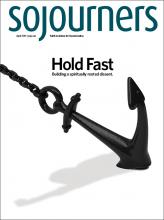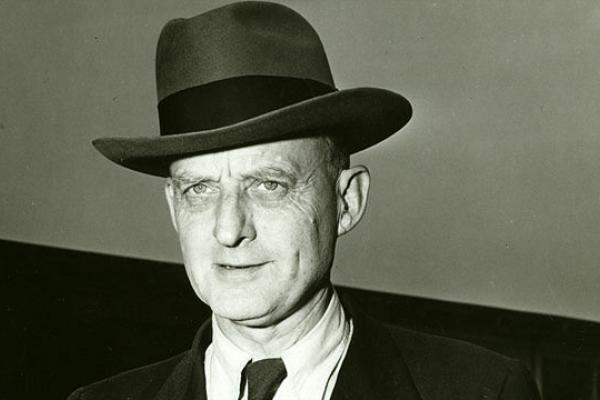NEARLY 46 YEARS after his death, Protestant theologian Reinhold Niebuhr is never very far from the public eye. He’s already immortal as the originator of the world-famous Serenity Prayer (“God grant me the serenity to accept the things I cannot change, the courage to change the things I can, and the wisdom to know the difference.”). And just last fall, an article in Harper’s took up the eternal question: “Where is our Reinhold Niebuhr?” President Obama once called him his favorite philosopher, and Niebuhr is regularly “proof-texted” by polemicists across the political spectrum, especially on questions of war and peace.
In April, PBS will air a documentary, An American Conscience: The Reinhold Niebuhr Story, directed by Martin Doblmeier. It will give an even broader public the chance to reflect on Niebuhr’s significance, in the company of such notables as Cornel West, Stanley Hauerwas, President Jimmy Carter, and New York Times columnist David Brooks.
I was eager to see the film. I’ve always felt that Reinhold Niebuhr was somewhere in my family tree. As a student at a Baptist-related college in the 1970s, I got heavy doses of his book Moral Man and Immoral Society. Later, I had the opportunity to interview Myles Horton, founder of the mother church of Southern radicalism, the Highlander Center, and learned that Horton had studied with Niebuhr at Union Theological Seminary. In fact, Niebuhr helped fund Highlander. And about a dozen years after that, I gave one of our sons the middle name Myles, in honor of Horton. So how many degrees of separation is that?
Read the Full Article

